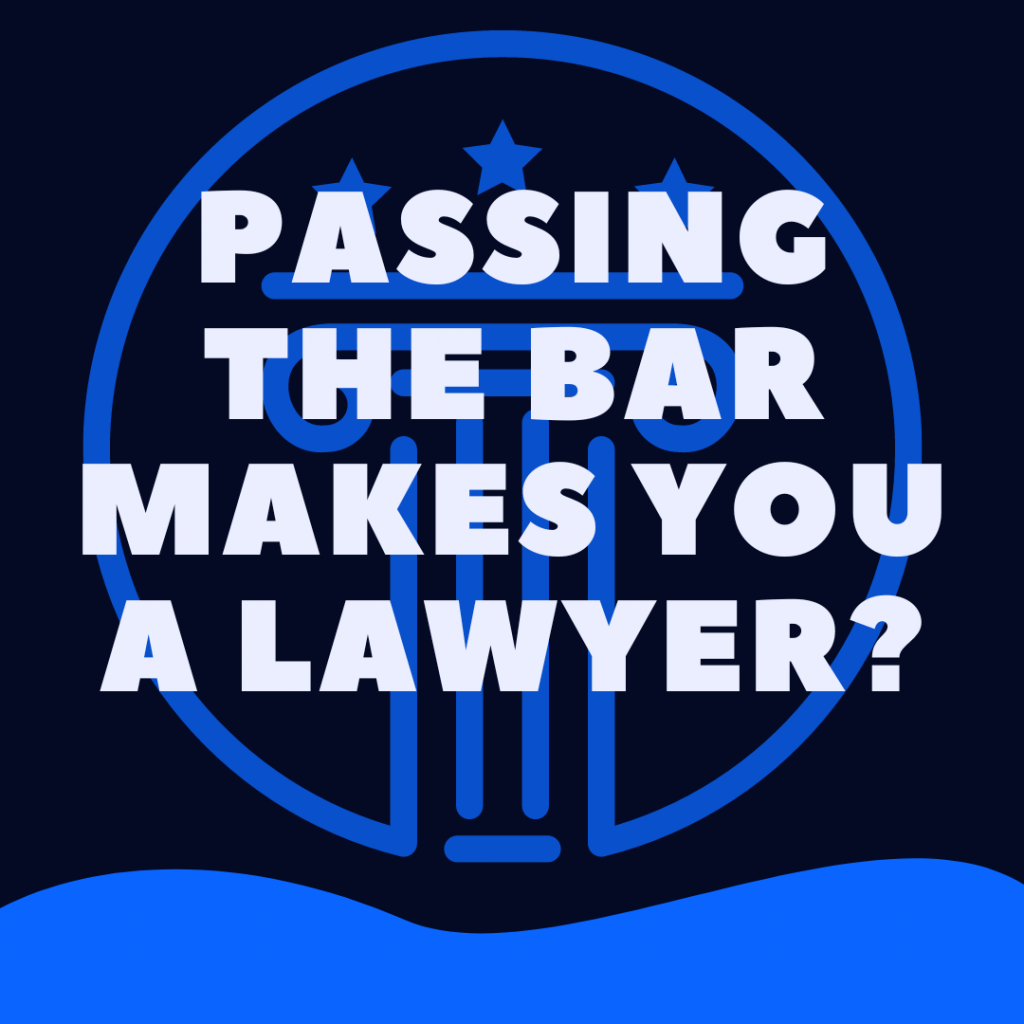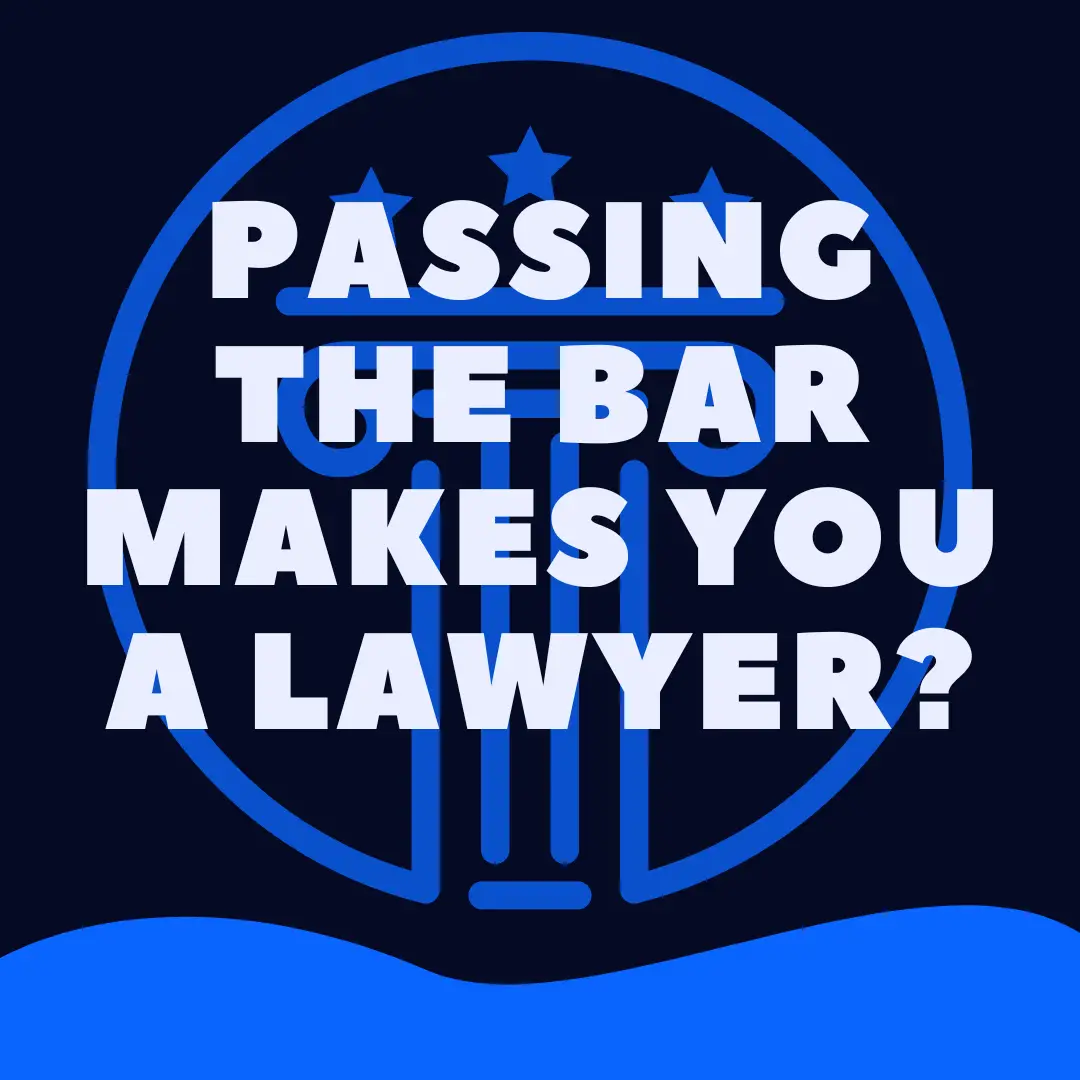This is a great question, actually.
And answering the question is not that simple.
Let us explain.
Does Passing The Bar Make You a Lawyer?
Everyone seems to have its own definitions for what it means to be a lawyer.
It is common for some people (and even law schools) to say that an individual who has obtained a law degree and passed the bar is a lawyer, even though that individual has not yet been admitted to the state’s bar.
And they will differentiate a lawyer from an attorney with the attorney being labeled as an individual who can take on clients and appear in court.
Others define it differently.
For example, dictionary.com states that a lawyer is “a person who practices or studies law.”
Merriam-Webster says a lawyer is “one whose profession is to conduct lawsuits for clients.”
The American Bar Association (ABA) says that a lawyer is a “licensed professional who advises and represents others in legal matters.”
In practice, most laypersons and even lawyers would not be willing to call anyone a lawyer who could not represent a client, whether that client needed you to go to court or not.
As a lawyer myself, I would not feel comfortable calling a person who ‘studies law’ a lawyer, never in a million years.
In all states, passing the bar alone does not make someone able to represent clients.
Instead, the individual must be admitted to the state bar membership, after taking and passing the bar (the test).
To be admitted to the state bar, the individual has to apply and pass the character and fitness to practice review, which means tendering personal references and submitting to a background check.
State bar associations often have strict rules about who can “hold themselves out” as being a lawyer.
They do not give much leeway to people who aren’t actually able to take on clients, yet still call themselves attorneys.
If you are trying to answer this question in a specific place (or for a specific purpose), you need to know what that specific situation allows as far as what it means to be a lawyer.
If you are asking if you can represent clients as a lawyer after passing the bar, the answer is no, you cannot represent clients as a lawyer until you have been admitted to the bar and been sworn in (and paid your dues).
If you are asking if you can qualify as a person who studies law, then certainly you would be.
Either way, do not seek to represent clients in legal matters until you have been appropriately licensed in the jurisdiction you seek to practice in.
Esq. vs J.D.: What’s The Difference?
J.D. is the acronym for a Juris Doctor.
Juris Doctor is the name of the degree a person receives after successfully completing law school.
Esq. stands for ‘esquire.’
Esquire is supposed to be the term for someone who has a law license and practices law.
However, lawyers rarely use it, and there is no formal requirement that lawyers use it.
Most of us feel like it is a bit snooty or pompous.
Wrap Up
Thinking about going to law school or becoming an attorney? Check out our law school and career guides in our legal library.
You might also like:
- Can a Lawyer Have An OnlyFans Account?
- Can a Lawyer Have a Lawyer?
- Can You Get Into Law School With a 3.0 GPA?
- How To Prepare For Law School In High School
- Why Are Lawyers Paid So Much?
- Is It Illegal To Change Lanes In An Intersection In Washington?
- Is It Illegal To Egg a Car?
- Can I Fire My Lawyer and Get My Money Back?
- Can a Victim Attend An Arraignment?
- How Long School Changes You



